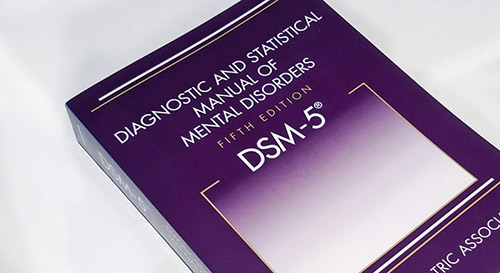
This summer, I started teaching a graduate-level course titled “The Treatment of Eating Disorders.” Teaching runs in my blood, and while I didn’t choose to go down this path as my sole career choice, having the opportunity to dip my toes into academia has proven to be more of a dive—and an incredible one at that.
Part of this experience has not only been about teaching and learning, but also reviewing the material that has been part of my core for so many years. One topic, an area that often gets little attention, was a reminder for the need for more understanding within the community.
OSFED: Other Specified Feeding and Eating Disorders. Previously, in the DSM-IV, it was called EDNOS: Eating Disorder Not Otherwise Specified. This disorder, while least well-known, is the most common eating disorder, and the highest mortality rates of deaths caused by eating disorders fall under the diagnoses of anorexia nervosa and OSFED. Yet, when the subject of eating disorders arises, I rarely hear people discuss, or even have knowledge of, OSFED.
OSFED includes various components from all the eating disorders: for instance, someone who regularly uses behaviors associated with the diagnoses of both anorexia nervosa and bulimia nervosa—not simply one or the other. Or, when the frequency of symptoms does not match those dictated in the Diagnostic and Statistical Manual.
For many individuals with this diagnosis, it feels “less than”; individuals who struggle with OSFED often feel like it is not legitimate. This may be because it is so unknown, or perhaps it is because it is not one of the “main” eating disorders. This can lead to questioning the gravity of the disorder and extreme feelings of loneliness.
Recognizing the potential shameful, embarrassed or lonely feelings can be key as a supporter. This does not mean that all with this diagnosis will feel this way, but it is incredibly common for there to be feelings around the diagnosis and it is an area that can allow for conversation and understanding.
Generally, as humans, we like to categorize, understand and make sense of things around us. Even as a clinician, when I meet a new client I’m quick to assess whether the individual struggles with one of the “top three” eating disorders (anorexia nervosa, bulimia nervosa, binge eating disorder) when in reality, it is vital to remember and to assess for OSFED. While a diagnosis is helpful with regard to submitting claims to insurance companies and understanding particular approaches or treatment modalities, it is also important to remember that the diagnosis doesn’t mean much when treating an individual.
Truly, the treatment of an eating disorder is about understanding the person and his/her struggle or pain. An eating disorder goes beyond the food or the behaviors or the lists in the DSM-5. It is about so much more than what one can see; it is instead about the inner workings of the client and their emotional, psychological and mental experience. An experience not of vanity or wanting attention, but of the development of a maladaptive coping mechanism that becomes a way of life. So, whether one struggles with one particular eating disorder diagnosis or another matters less than getting to know the person and how the eating disorder has served them, and what it will mean to recover and how you may be an aid in that process.
The first steps in providing this support are to seek out understanding. So please, continue to do so. Whether it be through this column or other pro-recovery outlets, do your research. Understand OSFED and other components of the eating disorder world, but also understand that true support will happen when you look beyond the diagnosis and the labels and the numbers to the person’s story and feelings. It is then, when you have made space to provide empathy and offer your love and care, that you can truly provide the much-needed support to so many suffering—especially for those suffering in silence.
By Temimah Zucker, LMSW
Temimah Zucker, LMSW, is an eating disorder and mental-health therapist working at Monte Nido Manhattan as well as in private practice. Temimah also co-facilitates groups for the Jewish community, speaks publicly about body image and mental health, and will soon be launching a non-profit specifically for eating-disorder support in the Jewish community. To contact her, please email tzuckersw@gmail.com.










